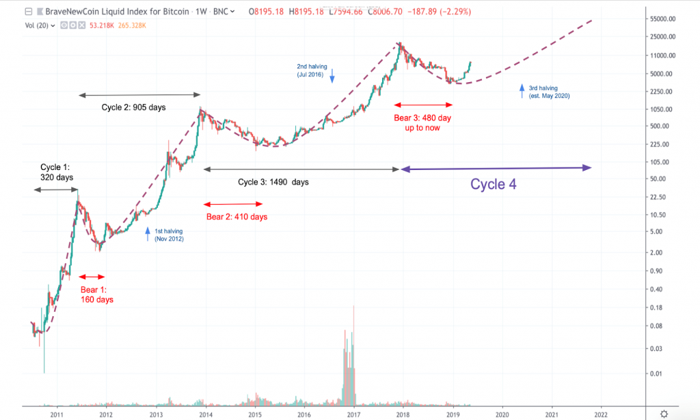In recent news, IRS Departures have caused considerable attention within the cryptocurrency community, particularly following the announcements regarding Seth Wilks and Raj Mukherjee, two key figures in the IRS’s digital asset division. Their exit, just over a year into their tenure, raises questions about the future of cryptocurrency regulation as significant changes sweep through the crypto industry. This seismic shift comes at a time when the IRS, known for its rigorous stance on crypto taxation, faces potential layoffs, adding further uncertainty to its regulatory approach. Amidst this backdrop, investors and crypto enthusiasts are keenly watching how these departures could influence policies surrounding digital assets. As the landscape of crypto news continues to evolve, stakeholders are eager for clarity on the implications of these changes within a rapidly transforming market environment.
The recent resignations from the Internal Revenue Service (IRS), particularly within its digital asset leadership, highlight a notable trend in regulatory agencies as they reshape their approach to managing virtual currencies. Key personnel like Wilks and Mukherjee stepping away signals not only personal career shifts but also potential regulatory shifts affecting how cryptocurrencies will be governed. The context of these departures is layered with economic factors, including anticipated IRS layoffs and broader adjustments within the cryptocurrency regulatory framework. Stakeholders in the crypto sector, including investors and developers, are left to ponder the effects of these movements on future enforcement and compliance issues. As the narrative unfolds, the intersection of government policy and digital asset management remains a focal point for anyone tracking developments in the crypto realm.
Understanding IRS Departures in Cryptocurrency Regulation
The recent departures of IRS digital asset directors, Seth Wilks and Raj Mukherjee, raise significant concerns about the future of cryptocurrency regulation in the United States. Both individuals played pivotal roles in shaping policies around digital assets during their short tenure. With the evolving landscape of cryptocurrency regulation, their exit leaves behind questions about the continuity of guidance from the IRS, especially as regulatory frameworks become increasingly crucial in managing the growing crypto industry.
These departures are part of a broader trend observed within government agencies, particularly the IRS, where personnel changes impact regulatory approaches to digital currencies. The large-scale acceptance of deferred resignations by IRS employees signals a shift that could potentially affect the agency’s response to innovations and challenges presented by the crypto sector. As the cryptocurrency space continues to expand, the need for stable, knowledgeable leadership at the IRS is critical for fostering investor confidence and ensuring compliance.
Impact of IRS Layoffs on Cryptocurrency Enforcement
The ongoing layoffs at the IRS, coupled with the recent resignations of key digital asset directors, are poised to affect the enforcement of cryptocurrency regulations significantly. Reports indicate that up to 20,000 IRS employees accepted deferred resignation offers, which leads to the question of how diminished staff levels will influence the IRS’s ability to effectively monitor and regulate the booming crypto market. A decrease in personnel could hinder the IRS’s oversight functions, creating gaps in enforcement and compliance measures that are essential for a balanced digital asset marketplace.
Moreover, these layoffs come at a time when the crypto industry is experiencing rapid changes and growing public interest. The IRS must adapt its regulatory strategies not only to respond to market behaviors but also to act as a deterrent against tax evasion and illegal transactions within the crypto space. Without adequate staffing and leadership, there is a real risk that regulatory measures could lag behind industry developments, potentially undermining the integrity of the financial system as cryptocurrencies gain further mainstream acceptance.
What the Future Holds for IRS Digital Asset Strategy
As the IRS navigates this transitional period marked by the departure of its digital asset directors, the future of its strategy related to cryptocurrency remains uncertain. With Wilks and Mukherjee’s exit, the agency must find new leadership equipped to advance its digital asset initiatives, ensuring that it can keep pace with the fast-evolving crypto landscape. The need for clear communication and updated regulations is crucial to minimize confusion among investors while establishing a robust framework for taxation and compliance.
It is imperative that the IRS quickly appoints successors who can continue the momentum of regulatory development. New appointees must be knowledgeable about the crypto industry’s complexities and ready to engage with stakeholders to refine regulations. If the market perceives a void in regulatory guidance, it could lead to increased risks, such as tax evasion and a lack of trust from consumers, ultimately hindering growth within the domestic cryptocurrency market.
The Influence of Crypto News on Regulatory Approaches
Keeping abreast of crypto news is more vital than ever for regulatory bodies like the IRS as they shape their responses to the accelerating changes in the cryptocurrency market. News outlets provide critical insights into technological innovations, market trends, and shifts in investor behavior that regulators must consider. This continual flow of information can inform policy adjustments, allowing the IRS to anticipate potential issues and remain proactive in its regulatory approach.
The connection between real-time news coverage and regulatory responsiveness cannot be understated. As public interest in cryptocurrencies grows, accurate and timely reporting allows the IRS to identify emerging trends that require immediate attention, ensuring effective oversight of digital assets. Furthermore, as the regulatory landscape evolves, maintaining an informed dialogue between regulators and industry players will be essential for fostering a self-regulating environment that encourages compliance and innovation within the crypto sector.
Navigating Cryptocurrency Regulation Amidst Industry Changes
The cryptocurrency industry is in a state of flux, with constant changes in technology, market dynamics, and regulatory frameworks. As the IRS faces departures of seasoned professionals responsible for digital asset oversight, stakeholders within the crypto space are concerned about the future regulatory landscape. It is crucial for the IRS to navigate these changes carefully, creating a balance between necessary regulation and the fostering of innovation that cryptocurrency embodies.
Stakeholders, including crypto firms and investors, are calling for clear guidelines that delineate the boundaries of compliance and legality within the crypto sector. As the IRS re-evaluates its strategies and seeks to fill leadership voids, it must engage with industry experts to draw on diverse perspectives. This collaboration will not only support informed decision-making but also help create an environment where both innovation and security can thrive in the evolving cryptocurrency ecosystem.
The Role of IRS Digital Asset Directors in Shaping Future Policies
The role of IRS digital asset directors, such as Wilks and Mukherjee, is vital in shaping policies that affect both compliance and innovation within the cryptocurrency sector. As policymakers, these individuals guide efforts to establish clear frameworks for taxation and regulatory compliance surrounding digital assets. Their departure raises questions about the future direction the IRS will take in drafting policies that accurately reflect the needs of a rapidly changing market.
Without strong leadership, there are concerns that progress in developing comprehensive regulations may stall, leading to uncertainty among market participants. The newcomers who will step into these roles need to possess a deep understanding of the crypto landscape and the implications of emerging technologies. This understanding will be crucial for successfully navigating the intersection of taxation and innovation in cryptocurrency, thereby reinforcing the IRS’s commitment to efficient and fair regulation.
Analyzing IRS’s Approach to Cryptocurrency Regulation Post-Resignations
After the resignations of key IRS digital asset directors, the agency’s approach to cryptocurrency regulation is under scrutiny. Analysts are keen to see how the IRS will respond to the challenges posed by a rapidly evolving digital asset market without its established leaders. Strategic shifts may be necessary to adapt to the current climate where innovations in blockchain technology and decentralized finance (DeFi) continue to disrupt traditional financial systems.
The IRS must prioritize developing clear guidelines that help crypto businesses understand their tax obligations while ensuring taxpayers are fully informed about their responsibilities. Such clarity is essential for both compliance and confidence in the cryptocurrency market. Only by maintaining robust regulatory oversight can the IRS foster a resilient framework that encourages responsible growth within the cryptocurrency sector.
Evolving Landscape of Cryptocurrency Regulation and Compliance
The cryptocurrency regulation landscape is constantly changing, and the recent IRS departures underscore the pressing need for adaptable frameworks. As digital assets gain broader acceptance, regulatory bodies face the challenging task of keeping pace with innovations while ensuring compliance and security. The departure of leaders in this field presents both risks and opportunities; for instance, it could lead to a lag in new policy developments, but it also opens the door for fresh perspectives and approaches in addressing the evolving crypto market.
Regulatory agencies like the IRS must draw on insights from recent crypto news and trends to inform their strategies. This adaptive approach will allow for the establishment of regulations that not only provide clarity to existing market participants but also accommodate new entrants, thereby fostering a thriving ecosystem. The insistence on compliance with established norms, paired with a willingness to adjust to new realities, will dictate the trajectory of cryptocurrency regulation moving forward.
Looking Ahead: IRS’s Strategic Plans for Cryptocurrency Oversight
As the IRS reevaluates its strategy following the exits of Wilks and Mukherjee, creating a roadmap for effective cryptocurrency oversight will be paramount. Stakeholders are eagerly awaiting new appointments that will provide direction and stability amidst the uncertainty. The upcoming leadership must possess the foresight to understand not only current trends in the crypto space but also anticipate future developments that could challenge existing regulatory measures.
Forward-thinking policies that recognize the balance of innovation and compliance will be essential for the IRS to establish itself as a leader in the regulatory domain. By prioritizing continuous engagement with industry experts and integrating feedback from the crypto community, the IRS can develop a framework that is both comprehensive and adaptable, ensuring that it meets the evolving needs of the cryptocurrency landscape.
Frequently Asked Questions
What does the recent IRS departures mean for cryptocurrency regulations?
The recent departures of IRS digital asset directors, Seth Wilks and Raj Mukherjee, may not signal significant changes in cryptocurrency regulations. Although their exit from the IRS has raised some concerns within the crypto industry, sources indicate that the IRS will continue its existing approach towards digital asset oversight.
How will IRS layoffs impact cryptocurrency regulation?
The IRS layoffs, particularly those of its digital asset directors, could lead to a slowdown in the development of new cryptocurrency regulations. However, the IRS’s ongoing commitment to regulating digital assets suggests that significant shifts in policy are unlikely despite the personnel changes.
Who are the IRS digital asset directors that recently departed?
The IRS digital asset directors who recently left are Seth Wilks, the executive director of digital asset strategy and development, and Raj Mukherjee, the executive director of the digital assets office. Their departures come after they were involved in setting guidelines related to cryptocurrency regulation.
Why did IRS digital asset directors leave the agency?
Seth Wilks and Raj Mukherjee accepted deferred resignation offers amid broader IRS layoffs affecting thousands of employees. It is believed their departure is part of an administrative restructuring rather than a change in the IRS’s regulatory approach to cryptocurrencies.
How significant are the IRS departures for the crypto industry?
The departures of IRS officials like Wilks and Mukherjee could have short-term implications for crypto oversight, but analysts suggest that the long-term regulatory framework will largely remain intact. The IRS has vast resources and personnel dedicated to cryptocurrency regulation despite these shifts.
What were the circumstances surrounding the IRS directors’ resignations?
The resignations of IRS digital asset directors followed a wave of deferred resignation offers extended to IRS employees. This was seen as part of a broader restructuring within the IRS that may lead to significant layoffs, though the specific roles of Wilks and Mukherjee were pivotal in developing cryptocurrency policies.
Are the IRS layoffs related to ongoing changes in the crypto industry?
While the IRS layoffs coincide with shifts in the cryptocurrency industry, including regulatory challenges and market volatility, it remains unclear if these layoffs will directly influence how IRS regulates digital assets moving forward.
What implications do IRS digital asset director departures have for future IRS policies?
Although the departures of IRS digital asset directors may raise questions about future policies, established protocols for cryptocurrency oversight are expected to continue. The IRS remains committed to refining its regulatory approach in response to the evolving crypto landscape.
What is the role of the IRS in cryptocurrency regulation?
The IRS plays a crucial role in cryptocurrency regulation by enforcing tax compliance and creating guidelines for how digital assets should be treated within the tax system. The agency’s active oversight is intended to provide clarity for individuals and businesses operating in the crypto space.
What should crypto investors know about IRS regulations after recent departures?
Crypto investors should stay informed about current IRS regulations, even after the recent departures of key officials. The IRS’s foundational stance on cryptocurrency compliance is expected to remain, ensuring that investors comply with tax obligations for their digital assets.
| Cryptocurrency | Price | 24h Change |
|---|---|---|
| BTC | $95,622.88 | -0.35 % |
| ETH | $1,829.94 | +0.51 % |
| USDT | $1.0011 | +0.07 % |
| XRP | $2.1919 | -0.03 % |
| BNB | $594.09 | -0.27 % |
| SOL | $145.34 | -1.07 % |
| USDC | $1.0009 | +0.08 % |
| DOGE | $0.1745 | -1.81 % |
| ADA | $0.6905 | -0.73 % |
| TRX | $0.2482 | +0.08 % |
| SUI | $3.2379 | -3.41 % |
| LINK | $14.06 | -1.72 % |
| AVAX | $20.11 | -2.89 % |
| LEO | $9.0763 | +1.21 % |
| XLM | $0.2689 | -0.15 % |
| TON | $3.0906 | -1.66 % |
| SHIB | $0.0₄1303 | -0.92 % |
| HBAR | $0.1787 | -1.46 % |
| BCH | $358.25 | -2.61 % |
| HYPE | $20.49 | +0.73 % |
Summary
IRS Departures have created ripples in the cryptocurrency regulatory landscape as two key figures leave the agency. The departure of IRS digital asset directors Seth Wilks and Raj Mukherjee, following a trend where many IRS employees accepted deferred resignations, raises questions about future enforcement and regulatory strategies. However, the IRS maintains that their exits will not impact its current approach to cryptocurrency regulation, assuring stakeholders that the IRS remains committed to managing the digital asset environment effectively.
In a significant development for the cryptocurrency regulation landscape, IRS departures have emerged as a focal point of concern within the crypto community. Recently, two prominent IRS digital asset directors, Seth Wilks and Raj Mukherjee, announced their departure from the agency just over a year into their tenure. Their exit comes amid broader changes within the IRS, including potential layoffs affecting many employees, which has prompted discussions around the future of IRS oversight in the rapidly evolving crypto landscape. As these individuals leave, the crypto industry is left questioning how this will impact ongoing regulatory strategies and enforcement in digital assets. With the increase of IRS layoffs and the political climate surrounding crypto news, the implications of these departures will likely be felt for some time, marking a pivotal moment in cryptocurrency regulation.
The recent exits from the IRS have raised eyebrows across various sectors, particularly in relation to digital currencies. The parting of seasoned officials like Wilks and Mukherjee highlights a shift in leadership that could reshape the IRS’s digital asset directives. As these key figures step away, insiders speculate about the future direction of tax policies concerning blockchain technologies and cryptocurrencies. Moreover, the departures coincide with a wave of workforce adjustments within regulatory agencies, contributing to an atmosphere of uncertainty in the crypto market. This scenario underscores the pressing need for clear communication from authorities as stakeholders look to navigate the complexities of cryptocurrency governance in this transitional period.















